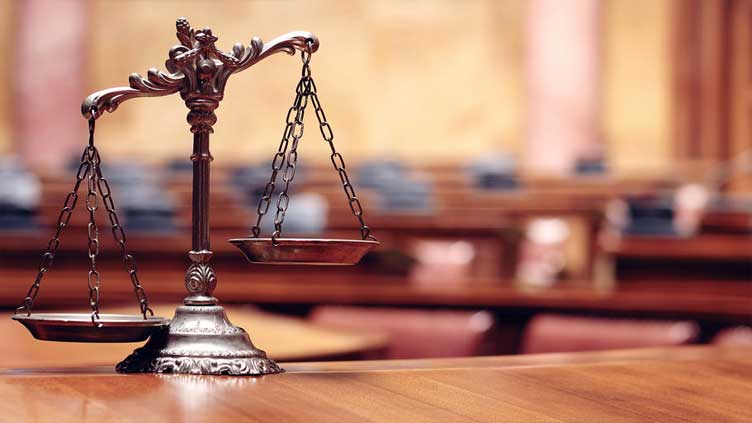Protection of law: an inalienable right in a guardian state

Pakistan
Protection of law: an inalienable right in a guardian state (Pic: ISHR)
By Humaira Afzal
A state assumes the role of a guardian, wielding its regulatory and coercive powers to ensure that all citizens are shielded from violence, discrimination and exploitation as envisaged in the international human rights instruments and domestic legal frameworks.
It is incumbent upon the state to establish a legal and social order that fosters an environment conducive to the realisation of human dignity, where individuals can thrive and flourish with their rights intact and their freedoms protected.
The state is charged with the solemn obligation of guaranteeing unimpeded access to justice, while assiduously upholding the tenets of safety and security. Likewise, the state is entrusted with the imperative task of skillfully managing adversities and disasters, whilst conscientiously shielding the lives of vulnerable groups and instituting measures to obviate discrimination and exploitation.
Through the assiduous fulfillment of these solemn obligations, the state exemplifies the sacrosanct right to life, ensuring the indomitable preservation of the security, well-being and dignified existence of each and every individual ensconced within its jurisdiction.
.jpg)
In the realm of legal discourse, the principle of human dignity stands as a bedrock upon which the responsibilities of the state rest. The state which, imbued with the power and authority to govern, is duty-bound to recognise, protect and promote the inherent dignity of every citizen. This entails a solemn obligation to craft laws, policies and institutions that uphold the sanctity and worth of human life, safeguarding individuals from any form of degrading treatment or violation that would undermine their inherent dignity.
The state bears an inherent and indispensable duty to diligently safeguard its citizenry from the perils of violence and aggression.
The constitutional architectures were well aware of the crucial importance of protection of law to its citizens while crafting the Constitution of Pakistan 1973 which provided 6 major articles to the subjects. Let’s have a glimpse of poetic expression about Article 4 which entails equal protection of law etc:
“In the realm of Pakistan's Constitution divine,
Article 4 doth etch a sacred line,
It whispers of dignity, an ethereal grace,
A promise to shield every person's face.
"Inviolability of his dignity and person,"
These words, like gentle melodies, do beckon,
For each soul, regardless of station or plight,
To be embraced in the arms of justice's light.”
Article 9 - Security of Person:
Article 9 unambiguously states that "no person shall be deprived of life or liberty save in accordance with law."
Article 12 - Safeguard against Retrospective Punishment:
Article 12 prohibits the imposition of retrospective punishment. It ensures that no person shall be punished for an act or omission that was not an offense when it was committed. This provision protects individuals from arbitrary punishment, thereby contributing to the preservation of life and personal security.
Article 14 - Inviolability of Dignity of Man:
Article 14 declares that the dignity of man shall be inviolable and ensures protection against torture, cruel, inhuman or degrading treatment.
Article 15 - Freedom of Movement:
Article 15 guarantees the right to freedom of movement. It states that every citizen has the right to remain in any part of Pakistan, to move freely throughout the country, and to reside and settle in any part of Pakistan. This provision indirectly safeguards the right to life by ensuring the freedom of movement, which is essential for the well-being and security of individuals.
Article 25 - Equality of Citizens:
Article 25 ensures the parity of individuals within the legal system. It prohibits discrimination on the grounds of religion, race, caste, sex, residence or place of birth. Ensuring equal treatment for all individuals is essential for safeguarding their right to life and promoting social justice.
The protection of law is not merely a desirable or decorative aspect but an indispensable right that lies at the heart of a fair and equitable society. This pivotal right acts as a potent shield, effectively safeguarding individuals from the capricious exercise of authority, the tyranny of oppression and the violation of basic rights.
By establishing a robust framework firmly grounded in principles such as due process, accountability and the rule of law, the protection of law empowers citizens to seek redress, assert their entitlements and actively engage in the legal system. In this nurturing environment, all members of society are free to thrive and actively contribute to the collective advancement.
Recognising the protection of law as an inherent and inviolable right is not only paramount to upholding human dignity but also to ensuring universal access to justice and forging a society that truly cherishes and protects the inalienable rights and freedoms of its populace.
To discharge this paramount responsibility, the state must invest in robust systems of forensic, investigation, justice, with fair and impartial courts that guarantee access to justice for all, irrespective of social status or economic means. By upholding the rule of law, a guardian state fortifies the pillars of human dignity, ensuring that justice is meted out and accountability is upheld.

